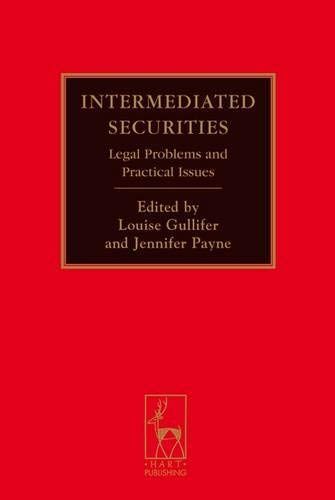
Intermediated Securities Legal Problems and Practical Issues
Globally, there has been a shift from securities being held directly by an investor, to a situation in which many securities are held via an intermediary. The existence of one or more intermediaries between the investor and the issuer has a potentially significant impact on the rights of the investor, the role and obligations of the issuer, and on the position and responsibilities of the intermediary. However, different jurisdictions have dealt with the issues arising from intermediation in a variety of ways. In the UK, for example, the concept of a trust is used to explain the different rights and obligations which arise in this scenario, whereas in the US the issues have been addressed by legislation, in the form of UCC Article 8. This variety is problematic, given that it is possible for an investor to hold securities in a number of different jurisdictions. A new UNIDROIT Convention on the issue of Intermediated Securities, the Geneva Securities Convention 2009, aims to create a common framework for dealing with these issues. This collection of essays explores the issues that arise when securities are held via an intermediary, and in particular assesses the solutions put forward by the new Convention on this issue. It will be essential reading for practitioners and academics.